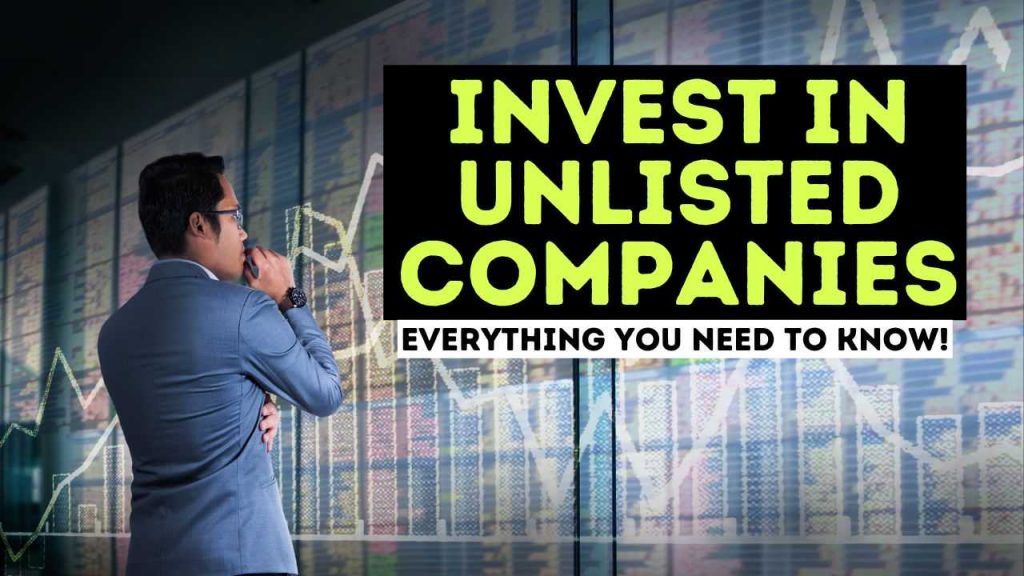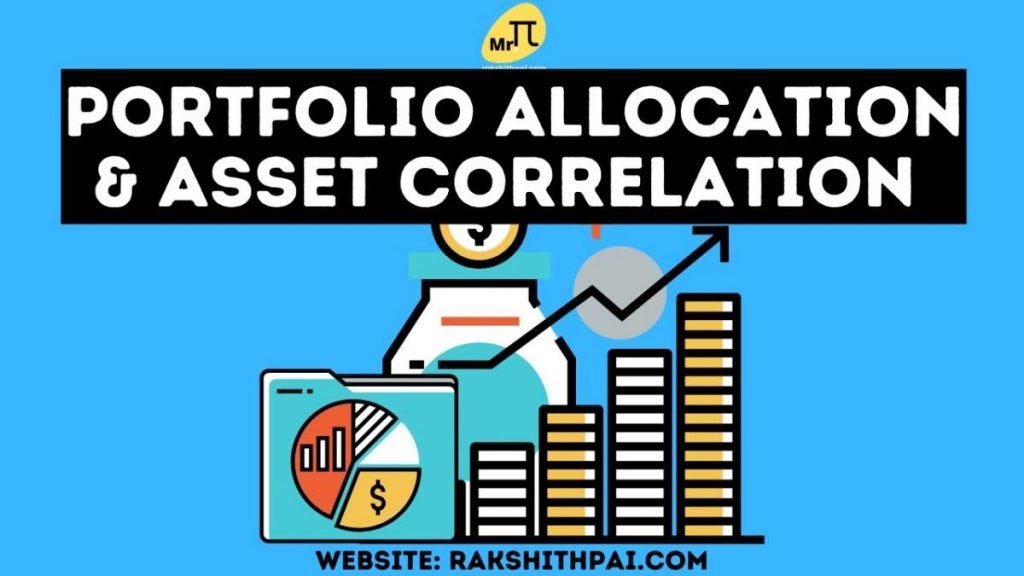Table of Contents
Introduction:
Firms that are featured and traded on a specific stock market are referred to as listed companies. A corporation must meet and continue to meet a number of requirements in order to be and remain listed on a stock market.
A private company must become public in order to sell its shares to the general public; once it goes public, it registers with a stock exchange. Businesses like to go public so they may minimize their debt and also have alternative sources of funding besides bank loans.
A public firm is not always required to be listed. A non-listed public corporation is one that is not listed on any stock exchange but may have an infinite number of shareholders in order to obtain funds for any commercial endeavor.
What are Unlisted Companies?
These are privately owned enterprises that are not listed on a stock exchange. An unlisted company cannot raise money from the general public. They are becoming investors in capital. The shares are traded “over the counter,” where the terms of the agreement can be tailored to the needs of the parties involved (buyers and sellers); hence, the sharing of controls are reserved. Companies that are not publicly traded have greater control over their activities.
To identify an unlisted company, consider the following:
- An unlisted corporation offers shares via private placement.
- Directors’ liability is limited and only towards the shareholders of such an unlisted company.
- When it comes to the investors’ exit strategy, the promoters are expected to pay for it and set aside money for it.
How to Pick Unlisted Companies for Investment?
Pick a Known Company
As Mr.Peter Lynch says – “Know what you own, and know why you own it”.
In order to be successful in Investing, be it in a listed space or an unlisted space, you must know what you own. So, the best way to start is by checking those industries, those sectors, and those companies that you are aware of.
Towards IPO
Companies on the path to an IPO may still provide an advantage relative to their initial public offering pricing. However, this is merely one of many benefits. Typically, these firms have already published their DRHP.
These are documents that include all pertinent information about the firm and are also known as holy grails. They are also subsidiaries of publicly traded firms that are professionally managed.
Revolutionary Business
This remains the primary motivation for investing. Look for industries of the future in which to invest. These are often in their infancy, with very few market participants. And they are certainly not listed. In recent years, notable sectors have included gambling, SaaS, Fintech, and e-commerce, among others.
Unlisted Companies are those that could the next big thing in the making.
Relatively Liquid Investment
Unlisted companies are known for their lack of liquidity. Usually, it is very difficult to find a seller of the shares you wish to buy. And, once you bought the shares, it’s still more difficult to sell the shares. Such is the liquidness of unlisted companies.
Hence, When searching for unlisted firms, liquidity is a crucial factor. In general, well-known and well-established corporations have a large number of interested investors and significant trading volumes.
Follow the Professionals
Here you may uncover firms where notable founders of massive startups are reentering areas in which they believe. You could also look to see if well-known angel investors and businessmen/tycoons have put money into them.
Typically, these angel investors have a knack for identifying tomorrow’s most successful firms. In addition, they come with an entire investing staff that conducts the required research to guarantee that their money is in good hands.
Pros of Investing in Unlisted Companies:
Investing possibilities are everywhere. And one of the best ways to make the ideal investment is to seek out disruptive industries of the future before they explode. This is where the majority of value creation occurs.
By the time they entered the stock market, their early mover advantage would have been significantly weakened.
By the time they choose to IPO, these investments would have easily quadrupled your initial investment. Over the last five years, the average gross portfolio return has exceeded a 25% CAGR.
Additionally, there are several other advantages. These include spreading your capital into non-existent industries.
Diversification
Diversification is a risk management approach that blends several investment types within a portfolio. A diversified portfolio consists of a variety of asset classes and investment vehicles in an effort to reduce exposure to any one asset or risk. This strategy is based on the idea that a diversified portfolio will, on average, give better long-term returns and lower the risk of each holding or investment.
As investors, we are all aware of the benefits of diversifying our portfolios. The more you diversify, the lower the risk of your investment portfolio, correct?
Unlisted equities are either not volatile or just moderately volatile. If you have highly volatile stocks in your portfolio, you can reduce the associated risks by including some quality unlisted stocks.
This would not only reduce risk but also improve the likelihood of larger profit margins.
How to Diversify Your Stock Portfolio
Attractive Returns
Even though the unlisted stock market isn’t very liquid, investors can turn this disadvantage into an advantage.
Due to the lack of liquidity, the stock price remains undervalued or overpriced for an extended period of time. You must look for undervalued investments. Then, if the stock is later listed and the company performs well with high returns, you may make huge profits in the long run.
As said above, Over the last five years, the average gross portfolio return for unlisted space has exceeded a 25% CAGR.
Long-term Benefits
Unlisted equities are neither suitable for short-term investment nor trading. Therefore, there is no rush to acquire and sell them to generate a profit.
You may simply conduct research, look for the greatest unlisted stock, invest, and then wait. There is no need to constantly bite your fingers when the market opens or shuts.
You may just wait till the stock price reaches your chosen level before selling it and depositing the proceeds into your bank account.
Best Long Term Stocks in India – 2022
Cons of Investing in Unlisted Companies:
Unlisted stocks carry a greater risk due to the lack of broad information about these firms. In addition, selling these stocks presents additional difficulties. An initial public offering (IPO) or a secondary market exit are two ways to get out of an investment.
Lack of Regulations
Investors in unlisted equities are not afforded the security and protection given by SEBI or the stock market. Always, there is substantial counterparty risk.
For instance, after placing an order, you must transfer the funds to the intermediary’s account. Then, within T+3 days, the transfer of the shares occurs. The intermediary may opt not to transfer the shares, resulting in the loss of your funds.
In addition, unlisted firms do not need to adhere to the strict registrar or other similar organization criteria when selling their shares. In the absence of a regulating agency, prices can also be substantially influenced by the middlemen.
This stock is traded off-exchange, which is not an official stock exchange. OTC does not have a physical presence. There are just two parties participating in the exchange.
Uncertain Investment
There is always uncertainty around the company as it can wind up at any time. There is also uncertainty regarding the price of the unlisted shares. This is because the price of these shares is completely based on assumptions.
So, now that you know the risks involved in this investment, let us see some of the guidelines which you can follow to mitigate these investment risks to a great extent.
Illiquid Investment
Unlisted stock is extremely illiquid. They are not traded on a stock market among numerous buyers and sellers.
If you need to purchase or sell, you must have a designated point of contact, which is the middleman. If the middleman is unwilling to purchase, you must seek out more buyers.
Therefore, these shares cannot be exchanged efficiently. It is a lengthy and laborious procedure.
Guidelines for Investing in Unlisted Companies:
- You must determine if the company in which you are investing is registered with the Registrar of Companies. You can do so by contacting the Office of the Company Registrar or by visiting the MCA (Ministry of Corporate Affairs) Website.
- Before you invest, you should obtain the company’s prospectus and study it.
- The firm must also have a good reputation. There are hundreds of registered businesses like this. Nonetheless, a few of these are popular.
- Look at the company’s fundamental analysis. Ensure the firm is consistently profitable, or at least not incur losses. Determine the number of years the company has been in operation. And, has it given any red flags in all these years of its existence?
- Check with the company’s management before purchasing unlisted shares. You must also investigate the management’s performance and corporate decision-making, among other variables.
- Determine the company’s plans and how they will affect the company’s growth.
- If someone is giving you a return that is excessively high, you should investigate it carefully. Oftentimes, if something sounds too good to be true, it is not worth your time.
Tax Implications of Unlisted Companies Shares:
Whether unlisted stocks are subject to capital gains tax depends on whether they are held for a long or short period of time. If the unlisted stocks are held for less than 24 months, i.e., less than two years prior to sale, the profits are considered short-term capital gains and are subject to taxation. Short-term capital gains are subject to taxation based on the investor’s income tax bracket.
Similarly, long-term benefits result from holding unlisted equities for more than 24 months prior to selling. Long-term capital gains are taxed at a rate of 20%, with indexation. Indexation means that the price of an asset can go up to keep up with inflation.
Calculating the capital gain for unlisted shares differs from that of public shares. In the case of listed securities, the purchase price and selling price are easily accessible via the stock market. For unlisted shares, however, the fair market value must be calculated.
The higher the fair market value and the actual selling price is regarded as the “sale consideration” for the shares. From this value, the cost of transfer and purchase is removed to determine the capital gains. Remember that if the shares are held for more than 24 months after being transferred, their indexed acquisition cost, not their actual purchase price, must be used to figure out how much they cost.
15 Best Ways to Save Income Tax in India:
Buying Unlisted Shares of Pre IPO Companies:
By purchasing unlisted shares, you can participate in a private firm before its initial public offering (IPO). One of the primary reasons investors purchase these shares is the anticipated returns. Companies sell these shares at a discount to entice investors to purchase a substantial interest in their unlisted stock. So, the price of these shares might go up during the IPO, giving investors a big return on their money.
Anyone wishing to purchase unlisted shares must have a Demat account, as these shares may only be transferred online. This is to ensure corporate sector transparency, investor protection, and governance.
You can buy such unlisted shares from the Company itself, its Employees & other shareholders, Financial Institutions, etc.
How to Buy Unlisted Securities from Zerodha?
A Demat account enables the electronic holding of securities. The securities you hold are not required to be publicly traded.
You can use your Zerodha Demat account to store shares, debentures, and other securities as long as they are available on the CDSL repository. You can do a search for the company’s name to find out if the securities are available on CDSL.
Using “CDSL’s Easiest” tool, you can transfer unlisted debentures or shares of unlisted firms (pre-IPO). Due to the lack of liquidity in the market for unlisted securities, which means it’s hard to find buyers and sellers, you should be more careful when looking into these investment opportunities.
On the Kite trading platform, unlisted securities will not be displayed. However, once they are in your Demat account, you are able to view them on the console.
For more information, CLICK HERE!
Conclusion:
Investing in unlisted shares is without a doubt hazardous, but the benefits are enormous. Therefore, you need to conduct thorough research on the firm and ensure that its fundamentals are strong.
In conclusion, it can be stated that investors should avoid investing in unlisted firms or any such equity investment activities outside the stock exchange. Unless the promoters are known personally, investors should not purchase shares or liabilities from a publicly-traded firm. Otherwise, investors would risk acquiring shares that are difficult to sell, even at a discount.
Although, It is not required that these shares be transferred to the promoter or the original purchasers in the event of an unlisted public company. These securities can be sold to anybody, but finding a buyer for unlisted shares is typically difficult.
Anybody who purchases these shares may have them transferred on their own in the company’s registration without the company’s opposition. Obviously, the seller and buyer must adhere to standard compliance requirements, such as the use of the correct transfer paperwork, the publication of a transfer stamp, etc.
The increase in investments in unlisted shares is related to the expectation of generating enormous returns upon listing. Nonetheless, before investing in these unlisted shares, you must analyze their values and assess their dangers.
Typically, seasoned investors with high-risk profiles and substantial cash on hand engage in unlisted shares because they can better comprehend the company’s financials and the dangers associated with them.
Purchasing unlisted shares involves a unique set of risks. There is a possibility that the IPO may not take place. In addition to an extremely high commission rate, there is also the possibility of firms disappearing with investor funds. The market’s volatility also puts long-term investments at severe risk.
FAQs:
Disclaimer: All the information on this website is published in good faith and for general information purposes only.









